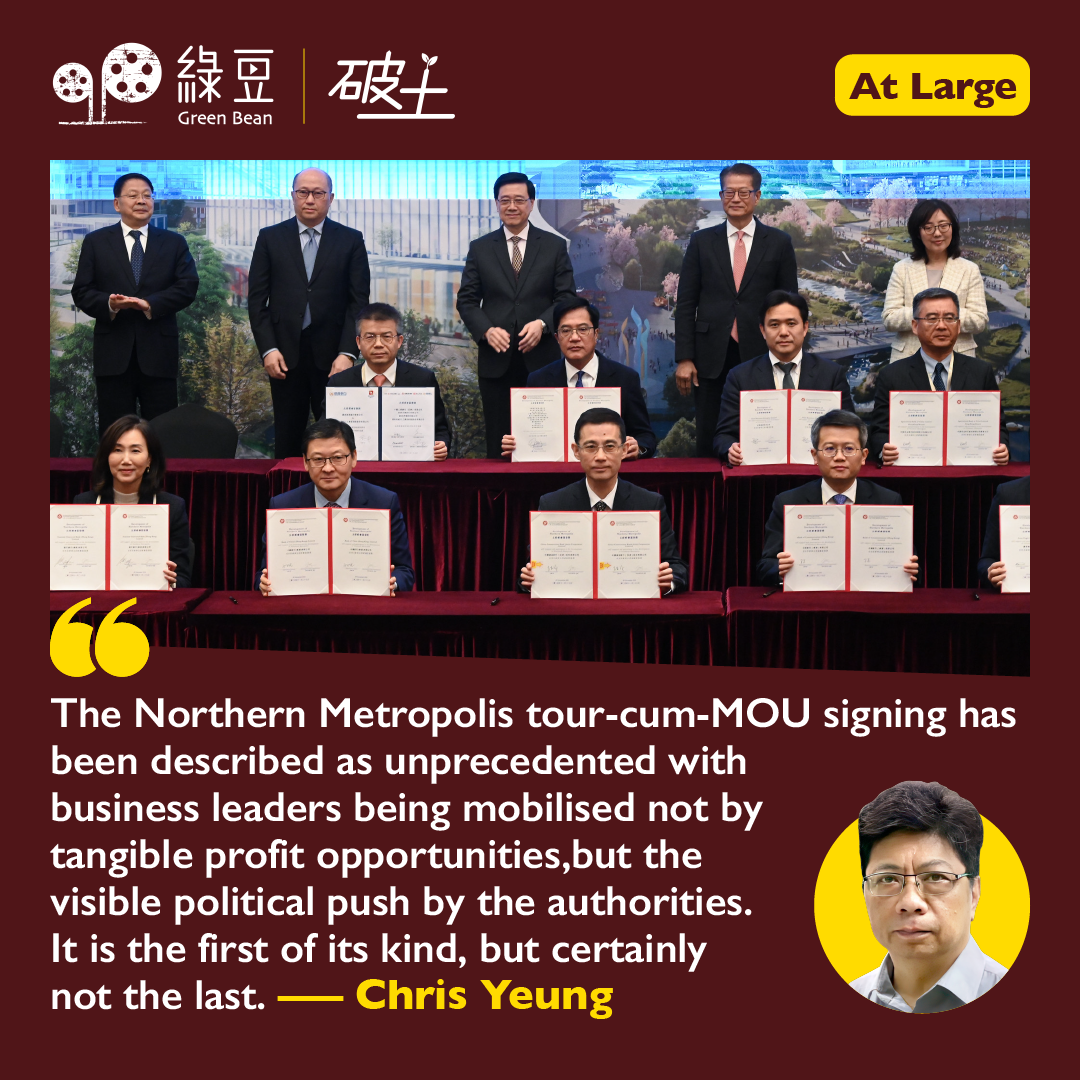From Hong Kong to China Hong Kong

Imbued with a sense of pride and achievement, Beijing’s top representative in Hong Kong Zheng Yanxiong told a business conference in Guangzhou last week Hong Kong has finally had the “appearance of China Hong Kong” after much suffering.
Under the strong leadership of Chinese Communist Party General Secretary Xi Jinping, the central government’s Liaison Office Director said the social and economic development of Hong Kong saw delightful changes and that the political ecology also witnessed profound changes.
Zheng did not elaborate on the “appearance of China Hong Kong”, nor suffering. Abstract it sounds, a quick look at the news headlines last week seems to be a help in visualising the face of “China Hong Kong.”
Put it in another way, Hong Kong is no longer Hong Kong as it was. It looks more like the other parts of the communist-ruled mainland China with politics coming first in various aspects of life, among other changes.
National security lectures for the bar industry
Start with a story about the bar industry that was given decent coverage in the English-language South China Morning Post, but was treated as a small story in most Chinese media outlets.
The Post reported that those who seek to join the Hong Kong Bar and Club Association will have to participate in lectures on national security, starting on November 25. Chairman Chin Chun-pong was speaking to reporters after he completed a course under the Government’s new National Security Education District Tutor Training Scheme.
Chin said safeguarding national security and sovereignty were crucial to Hong Kong’s long-term prosperity and stability.
The Government hopes to have at least 2,600 tutors trained by 2025 and that they are expected to give lectures to more than 78,000 people.
If bars and social clubs have been one of the symbols of Hong Kong’s night-time entertainment, that their operators are now given the responsibility of tutoring on national security could not be more illuminating about what Zheng said about the “appearance of China Hong Kong.”
Signing memorandum of understanding
Meanwhile, the story about a government drive with the central government behind, or perhaps on the front, pulling together a fleet of 85 business heavyweights to invest in the Northern Metropolis megaproject on Friday is an eye-opening lesson on politics and business in new Hong Kong.
On Friday, Zheng joined a tour led by Financial Secretary Paul Chan for a group of business representatives in a site in Northern Metropolis, including the areas earmarked for a new innovation hub dubbed the San Tin Technopole, near the mainland border.
It was followed by a signing ceremony in the afternoon with leaders of a group of local, mainland Chinese and overseas companies signing a memorandum of understanding on supporting the metropolis blueprint that envisions turning 30,000 hectares of land into an economic powerhouse and housing hub.
Speaking at the signing ceremony, both Chief Executive John Lee and the central government’s Zheng stressed the importance of business participation in the project.
Zheng was even more specific. He said the business community “should fulfil its social responsibility, increase investment in the areas of people’s livelihood in the Northern Metropolis, achieve a positive interaction between company development and livelihood improvement, enhance people’s sense of happiness and gain, and jointly maintain social harmony and stability.”
The Northern Metropolis drive came three weeks after Xia Baolong, Beijing’s pointed man on Hong Kong affairs, told business leaders at a meeting in Shenzhen to “recognise their responsibilities” and take “concrete actions.”
The meeting was dubbed by an unidentified figure from the financial sector in a news report as an unprecedented “mobilisation meeting” aimed to drum up business support for the Beijing-backed megaproject.
Not the last time
Uncertainties in the global economy and lackluster domestic economy are among the factors that have added more gloom to the property market. Prices have dropped by more than 10 per cent in the past 12 months. Developers have reacted coolly to government land sales.
With business and people’s confidence dented, the return of Donald Trump to White House has deepened Beijing’s fears of more turbulence in global politics and economy and the ramifications on the mainland and Hong Kong economy.
The Northern Metropolis tour-cum-MOU signing has been described as unprecedented with business leaders being mobilised not by tangible profit opportunities, at least at this stage, but the visible political push by the authorities. It is the first of its kind, but certainly not the last, as Hong Kong increasingly has the “appearance of China Hong Kong.”
( Pic: inmediahk )
▌[At Large] About the Author
Chris Yeung is a veteran journalist, a founder and chief writer of the now-disbanded CitizenNews; he now runs a daily news commentary channel on Youtube. He had formerly worked with the South China Morning Post and the Hong Kong Economic Journal.